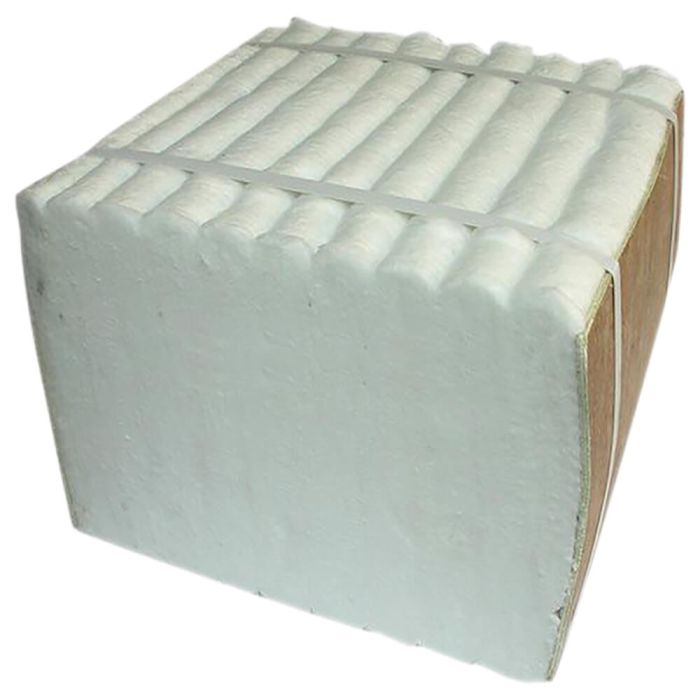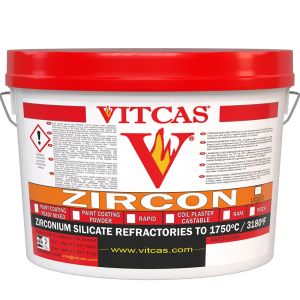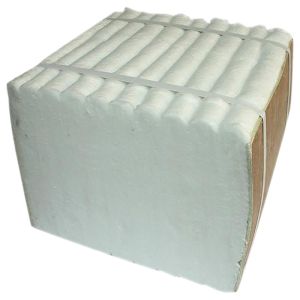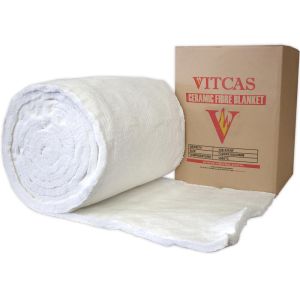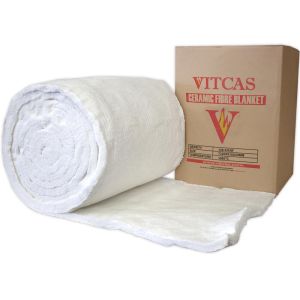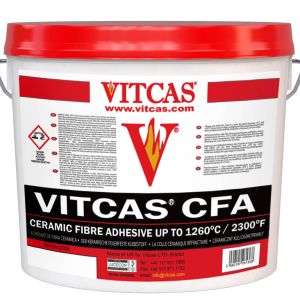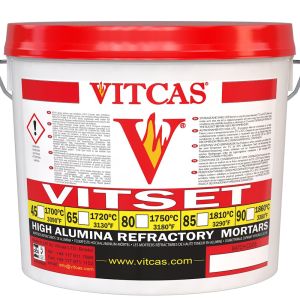1 June 2022 Edited Loading...
Ceramic Fibre Module -1430°C
Benefits of Shopping with VITCAS
Direct from Manufacturer
Tooltip
Fast shipping – dispatch even within 24 hours
Tooltip
Guaranteed returns within 14 days
Tooltip
Dispatched from our UK warehouse – Worldwide Shipping
Tooltip
Secure payment via Visa, MasterCard, AmEx, PayPal & Stripe
Tooltip
Ceramic Fibre Modules are manufactured from high-quality ceramic fibres insulation mat, compressed into rigid, modular shapes that offer exceptional thermal insulation for industrial furnaces, kilns, and boilers.
Key Characteristics:
- High-Temperature Resistance: Withstands temperatures up to 1430°C (2600°F), making it ideal for demanding high-heat applications across various industries.
- Low Thermal Conductivity: Effectively minimises heat loss and reduces energy consumption, improving the overall efficiency of thermal processes.
- Thermal Shock Resistance: Designed to endure rapid temperature fluctuations without cracking or degrading, ensuring long-lasting durability.
- Lightweight and Easy Installation: The lightweight structure allows for quick installation, reducing labour time and downtime in industrial settings.
- Versatility: Suitable for use in a broad range of industries, including power generation, chemical processing, and metalworking.
- Customisable Options: Available in various sizes and shapes, with custom options to meet specific application needs.
Applications:
- Furnaces & Kilns: Insulates high-temperature equipment in industries like metal processing, glass and ceramics.
- Boilers: Ideal for power plants and industrial boilers, enhancing heat retention.
- Chemical Processing: Provides insulation for reaction vessels and other high-temperature apparatus.
- Incinerators & Petrochemical Plants: Offers protection in refining and waste management applications where heat resistance and durability are critical.
| Product Group | Textiles |
|---|---|
| Color | White |
| Indoor | Yes |
| Temperature | 1430°C /2600°F |
| Manufacturer | Vitcas |
| Insulation | Yes |
| Material | Ceramic fibre |
| HS Tariff Code | 6806100000 |
Write Your Own Review
Product Q&A










